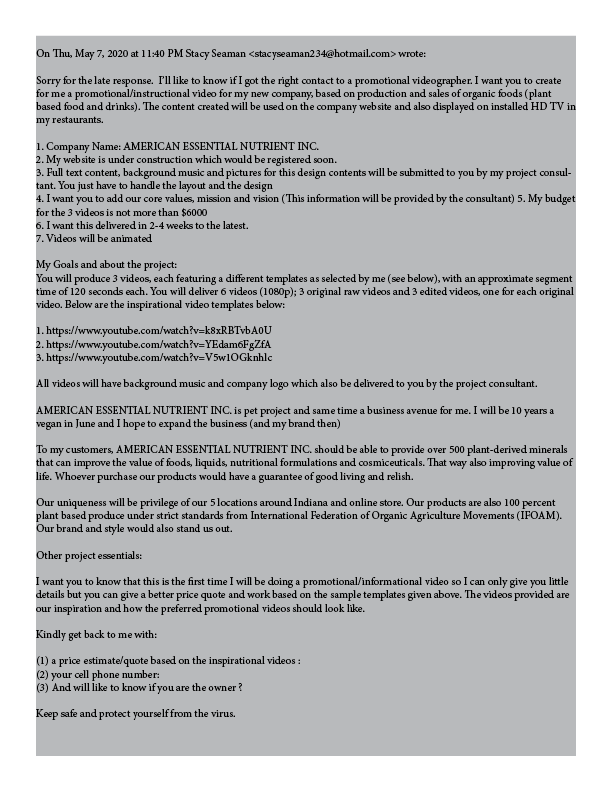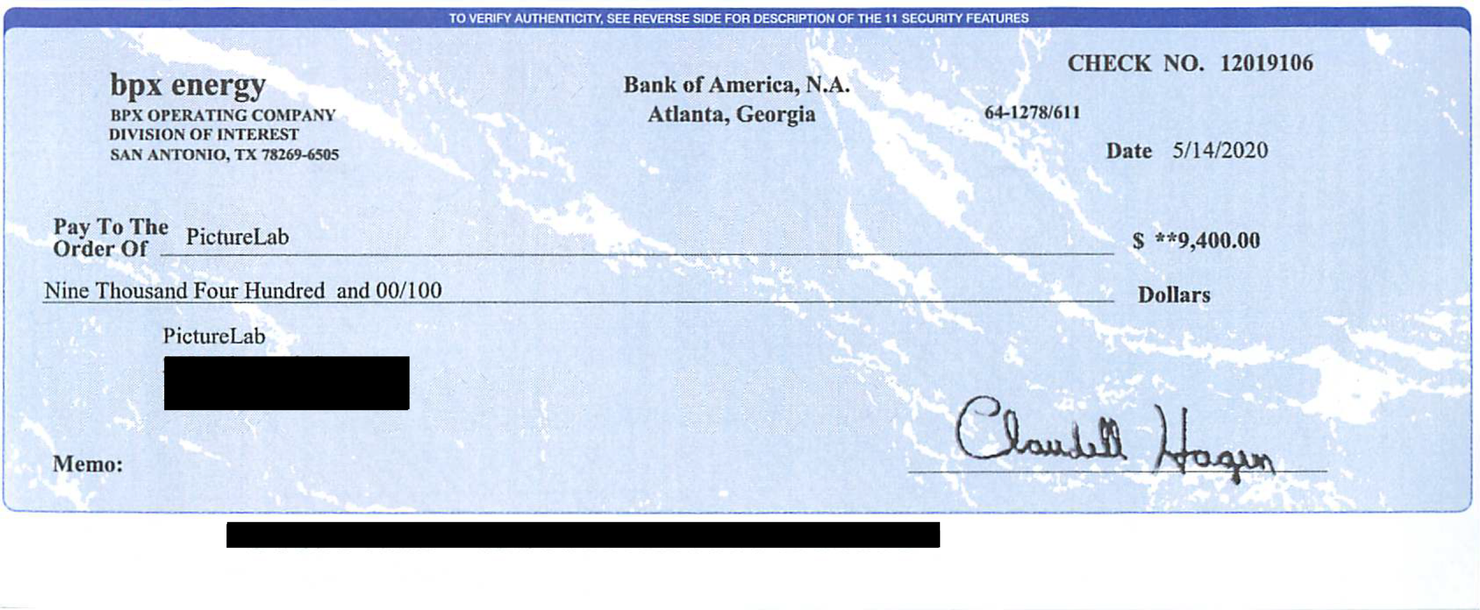This elaborate fraud targets video production company and other creative agencies.
Email scams are nothing new, but we found this latest effort to be interesting. To summarize, a video project inquiry led to a request for a third-party payment and ended with a FedEx-delivered fake check. This one specifically targeted us, a video production company, but similar attempts have apparently been going on in other creative fields going back to at least 2018. Read about them on Alex Wright’s fantastic blog here.
It started with a message through our website on April 19 from a “Stacy Seaman”. It simply said, “I would love to make some advertisement and instructional video for my newly established products/company. Please let me know your interest and would send more details. Thank you.”
The email address, stacyseaman234@hotmail.com, is a red flag in itself but we decided to vet it. We emailed back requesting a quick phone call to discuss. A little over two weeks later, Stacy responded with a long detailed email:
There are a few red flags in this email:
- We could not find American Essential Nutrient anywhere online. Companies don’t really think about hiring someone for videos until they’ve progressed a bit, so by the time a company reaches out to us, there’s almost always some level of online activity.
- They gave us a budget. Prospective clients don’t normally give us a budget over email, but sometimes they do so this wasn’t as big of a concern.
- They asked if I am the owner. I have had clients ask me this out of curiosity but never in an email.
Despite these red flags, it wasn’t the generic, “I am an African prince”, attempt. It had relevant information to the industry such as deliverables and reference videos. The grammar and spelling weren’t perfect, but we’ve seen that in legitimate client emails, especially our overseas clients. And there were things that made this person seem real, like the part about being a vegan for 10 years. We decided to send a quote.
A few days after, she responded that she’d like to move forward. This second email had another red flag: she was in Asia and was not available to take calls. This was of course the biggest red flag so far. Every scammer on Craigslist and elsewhere says they’re abroad and not available. But we decided to take another step to see what happens. We sent her a production agreement, which she signed and emailed back. And that final email confirmed it:
“I just received an early update from my bank that the payment of $9400 is already on its way to the given address via FedEx courier. The Project consultant funds for content/scripts/data (about 3400) was added along with your initial deposit.
Once the payment of $9400 was delivered, you can proceed to have it deposited for clearance at your bank (this usually takes overnight or maximum 24 hours). you can send the Project consultant her money after taking out your own payment of 6000 from the total amount. She took down your contact details and will be contacting you as soon as she get her money to pass over all detailed data/content/information over to you via drive.
Once again, the project consultant has all data and content ready for the design ,I could have pay her directly but she does not have facility to check or credit card at the moment. I signed the agreement and sent back in attachment.”
They also listed the following bogus address on the signed agreement: 421 Westheimer Rd A31, Houston TX 77027.
Once it conformed with the other scams we know, we decided to ignore from hereon. End of story, right? Well, a week later, we actually got a check via FedEx for $9,400.00. It’s from BPX Energy (a real company) and signed by a Claudell Hagen (not a real person as far as I can tell).
It’s one thing to create an elaborate email with links to reference videos and relevant project details, but it’s another to actually spend the time and money to FedEx a fake check. It’s been a few days and we haven’t received a follow-up from the scammer, but we’ll update if we do.
To sum-up, here are the red flags we encountered:
- Generic email address, from a free account with a name followed by numbers. In our case, it was stacyseaman234@hotmail.com.
- Company has no online presence.
- Person has no LinkedIn account.
- They include a fixed budget number in the initial email.
- They are looking for the owner right off the bat.
- Fake address.
- They claim to be abroad.
Of course, the presence of one of the above may not mean it’s a scam, but taken as a collective, it should activate your fraud radar. And of course, when someone asks you to pay a third party or pay anything, then that’s more than a red flag, it’s a flashing neon sign to block it out.
If you’re targeted, the best thing to do is just ignore it. You can also check out how to report scams and fraud at the USA.gov site.
Encountered this or something similar? Comment below.


